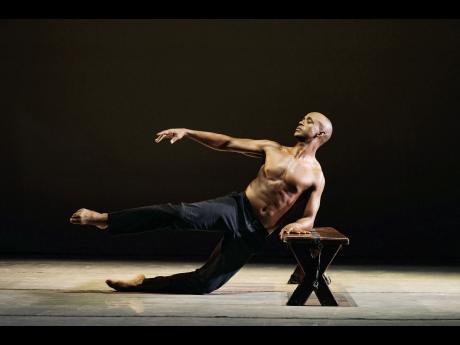Movements, forms and expressions - Jamaica as a dancing destination
Few people would contest Jamaica's reputation as a world-class dance destination. We know not only how to 'dance ah yaad' but also how to 'dance abroad'.
This is evidenced in the plethora of local companies who tour the world, and in our home-grown talents, who, like me have worked in international companies and productions of world acclaim.
Our popular dance culture holds special magnetism for persons from other cultures whose priority goal for visiting Jamaica is to participate first-hand in learning and performing popular dancehall steps.
We appear to be as much fascinated by the interest of the Japanese in this regard as they are with the phenomenon. The well-known dancehall queen competition has seen its fair attraction of international entrants.
This, however, is not new.
Dance is deeply rooted in our culture and history. It is reflected in the undulations of the body, the significant emphasis on improvisation, and an undeniable 'aesthetic of the cool'. The sense of occasion and community that undergirds the practice are palpable.
This very rich culture and heritage of dance in Jamaica is the driver for its inclusion in so many distinct areas in our social, educational, political, religious and economic spheres, directing the path to 'Dance Destination, Jamaica'.
Then
When the National Dance Theatre Company (NDTC) was formed 50 years ago, one of the missions was the development of dance in Jamaica from a national and cultural perspective.
Within the ethos of Professor Rex Nettleford, co-founder of the company, we see a trend towards investigations and celebrations of identity - Caribbean identity and one's (individual or entity) place in the diaspora. From this vision and structure birthed three individuals, Sheila Barnett, Barbara Requa and Bert Rose, who became founders of the Jamaica School of Dance.
In the 1970s, the School of Dance began offering classes for company dancers and training for choreographers, instructors, and dance educators.
This was to become a deliberate policy from the time of the merging of the separate entities of the schools of dance, music, drama, and visual arts into the the Cultural Training Centre (CTC) in 1976 through its various iterations up to and including the Edna Manley College of the Visual and Performing Arts.
Now
The School of Dance, conscious of its responsibility to the emerging industry, continuously assesses its programmes and introduces new ones fuelled by the school's mandate to continually provide quality training in all aspects of dance theatre and production (performance, choreography and production), as well as the need to provide young people in Jamaica and the Caribbean region with higher and more globally recognised qualifications.
The school offers a Bachelor of Fine Arts (BFA) degree in performance and choreography, a Bachelor of Arts in dance education, an Associate of Arts (AA) in dance performance, a certificate in dance performance and a one-year foundation-building certificate in fundamentals of dance technique. There is also Bachelor of Fine Arts degree in traditional and folk dance studies.
Career Pathways
The popular dance culture is energised by graduates who are equipped to pursue a range of careers as professional dancers and choreographers, teachers, community dance practitioners, dance administrators, dance advocates, event coordinators, production managers, and entrepreneurs.
Their work is evident in a variety of organisations and sectors, including the hotel and cruise-shipping industry, and local and international professional dance companies.
When this new talent finds commonality with the work of masters such as Garth Fagan, NDTC alumnus and founder and artistic director of Garth Fagan Dance (based in Rochester, New York), who is also the choreographer for the world-acclaimed musical Disney's The Lion King, the impact of Dance Destination Jamaica is electrifying and produces unique synergies. The Lion King has auditioned in and continues to return to Jamaica to recruit dancers, singers and actors.
Deborah Powell, David Blake, Jermaine Rowe, Candice Morris, Tovah-Marie Bembridge, Benton Morris and yours truly were recruited in local auditions.
Other Jamaicans dancers who performed in the musical include Dwayne Barnaby, Marcos James, Marc Hall and Shelly-Ann Maxwell. All attended classes at the School of Dance.
Accordingly, there is an emergence of local talents being recruited to host workshops and classes in dancehall in countries as exotic and as far as Russia.
Orville Hall, Xpressionz Dancers, Kimiko 'Verstatile' Miller (BFA in performance and choreography), Kimberly 'Weezy' Hyman (past student of the School of Dance), and Latonya Styles are some such talents.
Future
Increasing focus on Brand Jamaica and the creative industries and their economic potential offers opportunities and positions Jamaica as not only a vacation/cultural destination, but a dance destination. Investment prospects abound.
The task of all stakeholders is manifold: increase access, develop and maintain strong standards, increase the knowledge base, foster innovation and entrepreneurship. There must be increased focus on arts management, supported by the development of policies and professional bodies to facilitate same. Jamaica as a dance destination is real and should be promoted.
- Kerry-Ann Henry is an educator, mathematician, statistician, performing artist, and education technology specialist. She is currently the vice-principal of administration and resource development at The Edna Manley College of the Visual and Performing Arts and ballet mistress and Principal dancer for the National Dance Theatre Company. This article is based on a previous article published in the 'NDTC Journal' in 2015 and is courtesy of The Edna Manley College of the Visual and Performing Arts. Send your feedback to principal@emc.edu.jm.



